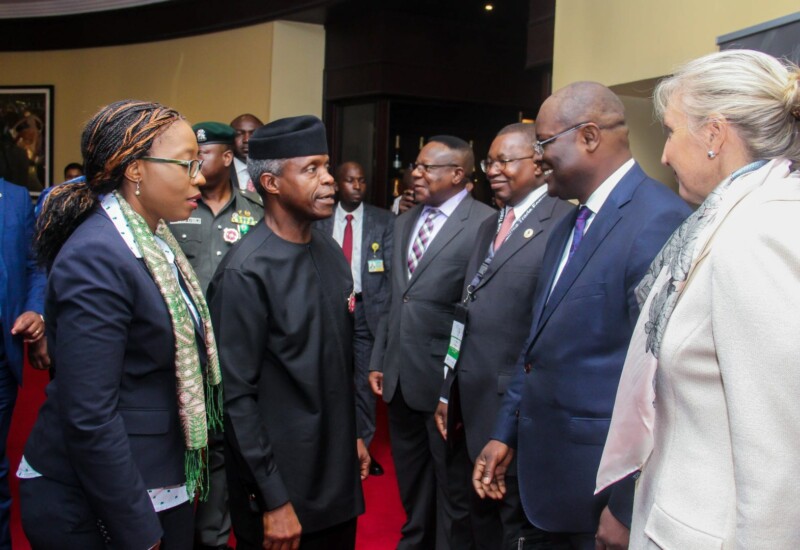The Africa Trade Forum 2018, hosted by Nigeria’s Ministry of Industry, Trade and Investment, and co-organised by the United Nations Economic Commission for Africa (ECA), The Rockefeller Foundation, and the African Union Commission (AUC), took place on 2-3 November, 2018 in Lagos.
The Forum brought together stakeholders from across the continent, from political and governance spheres, the private sector and entrepreneurs, philanthropies, academia, researchers, and development partners, to discuss the process for realizing the African Continental Free Trade Area (AfCFTA).
The AfCFTA was signed in March 2018 by 44 African countries and, if ratified, became one of the world’s largest trading blocs. It is also the biggest trade agreement signed since the World Trade Organisation (WTO) was established, bringing together 1.3 billion people with a combined gross domestic product (GDP) of more than $2 trillion in a single market. The agreement aims to provide improved competition and lower business costs.
The Forum’s purpose is to look into the challenges and opportunities of the AfCFTA in individual African states, and to better understand how AfCFTA can drive economic development and prosperity on the continent for all of Africa’s citizens.
The AfCFTA offers a long-awaited platform for Africa to ramp up its industrialization through various channels such as eliminating tariffs on intra-African trade, which will result in more competitive services that reduce business costs, improve business efficiency, and enhance value to consumers.
Economic Commission for Africa (ECA) Executive Secretary Vera Songwe says in an age of trade wars, Africa is sending a strong message that trade deals and reforms can be approached through consensus-building and cooperation, leaving no one behind.
The agreement is also expected to lead to booming multi-sectoral growth in areas including agriculture, where the AfCFTA will provide opportunities to drive agri-business and provide access to new regional markets for farmers and regional agro-value chains. With regard to access to electricity, about 600 million Africans still lack access to electricity. If current trends continue, it could take up to the year 2080 until Africa achieves full electrification. The AfCFTA would help build momentum on establishing an integrated set of platforms and partnerships to drive regional power systems, accelerate energy access for productive use, and bring down the costs of Africa’s power generation.
The trade forum will provide a platform to discuss Africa’s participation and ownership of the AfCFTA objectives and examine how intra-regional trade can enable prosperity in Africa. The Forum will bring together stakeholders to determine how nations can move from a signed AfCFTA to real action and implementation.
“The AfCFTA is critical for Africa’s economic competitiveness and development. Once the African Continental Free Trade Area starts to fully function, African enterprises will be exposed to large economies of scale and scope. With expanded production and competitiveness, as well as increased investment, our enterprises will be able to increase Africa’s share of global trade, creating opportunities for economic development as well as the prosperity of African countries,” said the Africa Union Commission.







